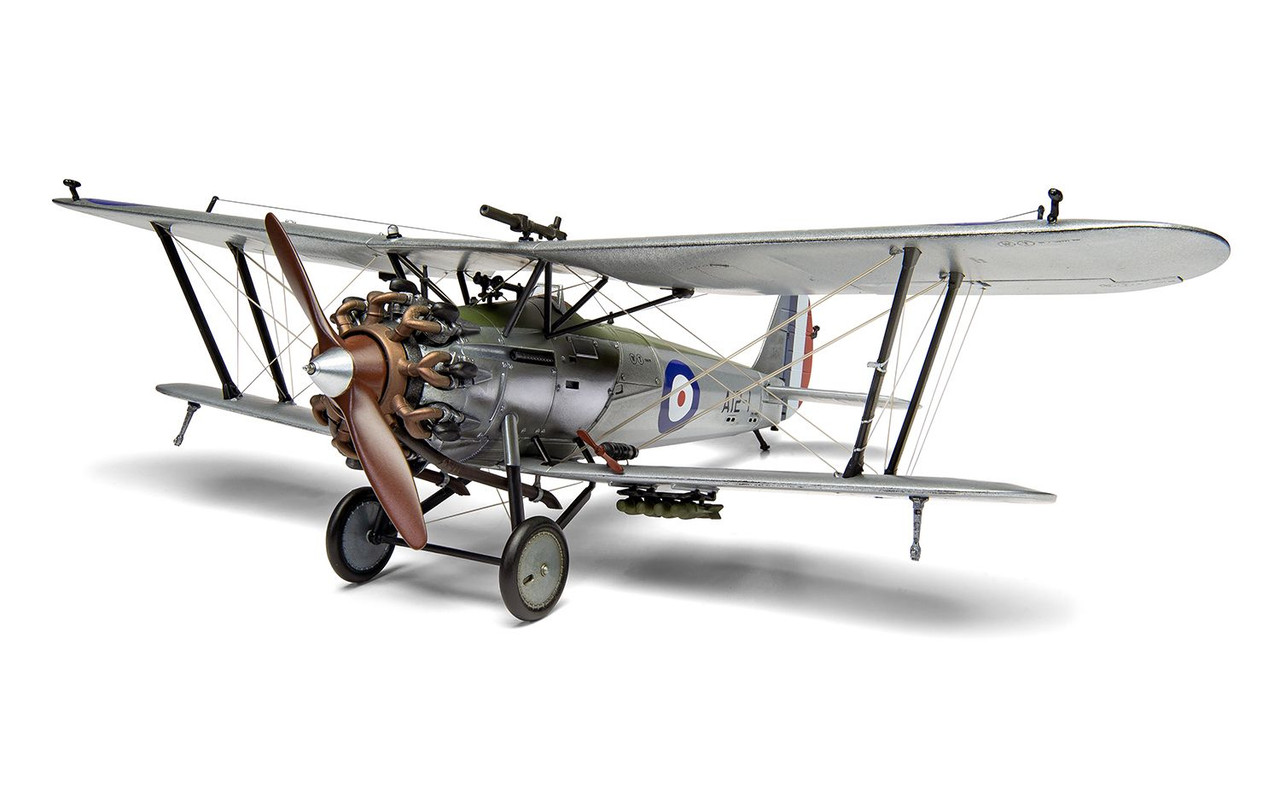Product Description
Product Info
A gleaming silver steed flown by the most capable and intrepid young men Britain could call upon, the Bristol Bulldog was one of the most important British aircraft of the inter-war period, when powerful biplane fighters unquestionably ruled the skies. Initially developed as a private venture by the Bristol Aeroplane Company, the Bulldog was the brainchild of accomplished aircraft designer Frank Barnwell, the man behind the successful Bristol F2B Fighter of the Great War, and was a light, all-metal and fabric-covered fighter, powered by a 440hp Bristol Jupiter engine.
The Bulldog was armed with a pair of forward-firing Vickers 0.303" machine guns mounted on either side of the cockpit, but ultimately never fired its guns in anger during a relatively short seven-year period serving with Fighter Command. Although it was the most capable fighter of the day, the Bulldog was more closely associated with challenging formation flying and spectacular aerobatics, with the Royal Air Force thrilling huge crowds at airshows and pageants around the country, as they demonstrated the effectiveness of a modernising air force.
What the Bulldog did do was help advance Britain's aviation industry towards the production of the sleek, monoplane fighters which would contest the Second World War, as it highlighted the fact that biplane designs were fast approaching their zenith. Perhaps the most famous incident involving a Bristol Bulldog proved to be a rather unfortunate one, when an accomplished, but rather headstrong RAF pilot performed unauthorised low-altitude aerobatics for a group of onlookers and a private civilian aerodrome in Berkshire.
Flying so low that the wingtip of his fighter struck the ground during a manoeuvre, the Bulldog cartwheeled across the airfield, inflicting catastrophic injuries on the pilot - that pilot was future Second World War RAF ace and inspirational national hero Douglas Bader.

























